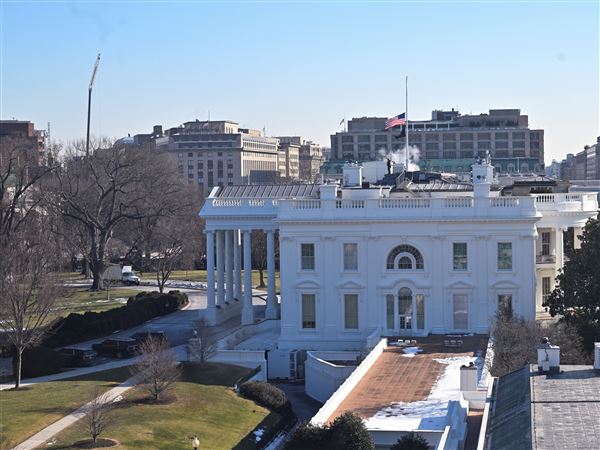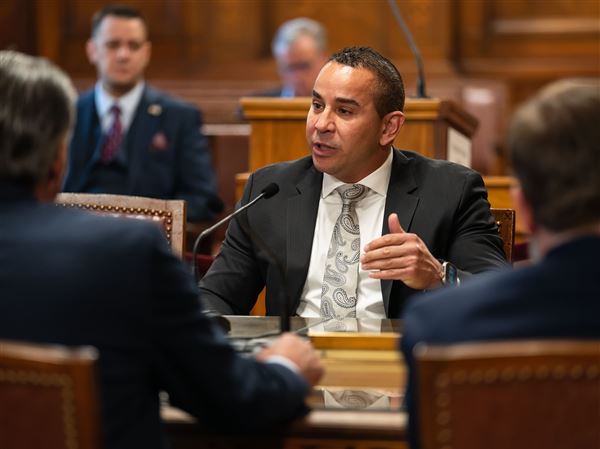South Fayette and six other Pennsylvania municipalities have asked the state Supreme Court to deny a Corbett administration request to reconsider its order declaring unconstitutional the "drill anywhere" provision of the state's oil and gas law.
The municipalities say in a 15-page response filed Wednesday that the court's Dec. 19 decision was based on a purely legal determination that the law's provisions overriding local zoning were unconstitutional. They further say there is no need to review additional factual evidence and findings that the state Department of Environmental Protection and the Public Utility Commission now want to introduce on appeal.
"This wasn't a factual case with evidence," said John Smith, co-counsel for the municipalities. "It was a pure matter of law and they even argued that, to the Commonwealth Court, that the factual record was of no relevance."
In an appeal filed Jan. 2, those state entities and the governor's Office of General Counsel asked the Supreme Court for an opportunity to re-argue the case and introduce new evidence. In filing for the appeal, the Public Utility Commission and DEP asked that the case be returned to Commonwealth Court for development of the evidentiary record.
"They've lost on the law question, so now they want to re-argue on the facts," Mr. Smith said.
The municipalities also quote the Supreme Court opinion that states Act 13 did not pass constitutional muster because "constitutional commands regarding municipalities' obligations and duties to their citizens cannot be abrogated by statute."
The municipalities' response states the Supreme Court based its decision on the "plain language" of the state constitution's Environmental Rights Amendment, which has been part of the constitution for more than 40 years.
Mr. Smith said that although factual evidence was not required by either the Commonwealth or Supreme courts, the municipalities' original filing, appealing Act 13, contained hundreds of photographs of well sites near residences and documents, including medical and toxicological studies and affidavits, accident reports, drilling impact analysis and newspaper articles.
The municipalities' response also questioned whether the state Office of General Counsel, which represents the governor, and the DEP have standing to appeal the Supreme Court's decision. It states that defending the constitutionality of the state's laws is the job of the state attorney general, but that office is not part of the appeal.
As for the DEP, the response notes that, "... the DEP is charged with protecting the Commonwealth's environment, yet rather than defend its Section 27 (Environmental Rights) fiduciary duties, Agencies seek to undermine their constitutional role."
A spokesman for Gov. Tom Corbett could not be reached.
Besides South Fayette, the municipal plaintiffs included Peters, Mount Pleasant and Robinson townships in Washington County, and Nockamixon and Yardley in Bucks County.
First Published: January 16, 2014, 4:28 a.m.















